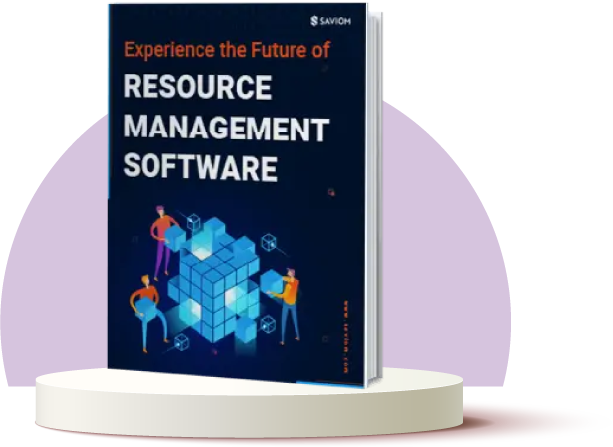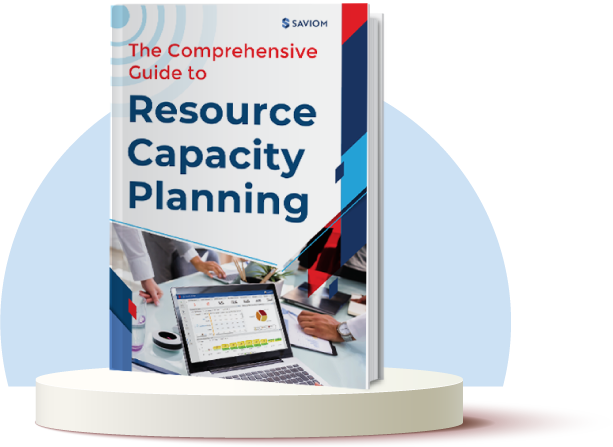Hiring the right resource is critical for the success of your organization. However, the pertinent question is, should you recruit a candidate who is a “jack of all trades” or someone who is a “skilled master of one”?
In the business landscape, the jack of all trades is called a generalist, and the skilled master is a specialist.
To answer the question, there is no absolute formula that tells who amongst the two will add more value. It depends on the project or organization’s requirement, hiring strategy, and short-term/long-term objectives of the firm.
This blog post takes you through the pros and cons of hiring both generalists and specialists and helps you make an informed decision.
Let’s get started.
What is a generalist resource?
A generalist resource is someone who has a breadth of knowledge and is multi-skilled. They usually work in multiple departments or functions and understand the responsibilities of various jobs. With this understanding and broader expanse of knowledge, they can handle multiple tasks and adapt to different work environments.
Benefits of hiring generalist resource
Hiring a generalist can be beneficial for the organization depending on the requirements of the position you are trying to fill. The following are some of the advantages:
Expertise in multiple domains/fields
As stated in the definition, generalists have a more extensive range of skills and competencies. As a resource with a diversified portfolio, they are more functional and indispensable across multiple departments. Also, they possess transferable skills, which is a critical aspect of business scalability.
Cost-effective
Since generalists don’t have domain expertise or specific certifications, they are cost-effective. In addition, if there is unplanned attrition, it’s not very challenging for organizations to fill their vacant spots.
Easy to redeploy
With the broad range of skills they possess, generalists can work on multi-faceted projects. In addition, when your organization plans to restructure the workforce or implement any changes, a generalist can be easily redeployed to different tasks.
Less turnaround time to hire
Due to lack of advanced technical expertise, organizations don’t have to conduct high-precision skill assessments when recruiting a generalist. One can hire them in a short time as the rounds of interviews are fewer.
Adept for leadership roles
According to a study, generalists have a better chance of making it to the top management positions.
That can be accredited to the fact that generalists usually work in multiple departments and have broader exposure to the functions. Moreover, with a deeper understanding of various working methodologies, they have the ability to connect and correlate with different teams. Pertaining to all these factors, they can be better executives.
Now that we have enlisted the benefits of hiring generalist resources let’s go through some drawbacks.
Limitations of generalist
Possessing multiple skills is a bonus for generalists, but it can lead to certain setbacks. Following are the downsides –
Cannot meet specific requirements
As discussed earlier, generalists lack domain expertise or niche skillsets. Due to the lack of advanced skills, they cannot fit into roles with specific requirements.
For instance, a marketing associate with varied skills such as content writing, SEO analysis, etc., cannot fulfill the role of a content manager that requires a stronghold in the content writing space.
Low retention rate
Generalists may find it challenging to identify their footprint in an organization due to their skill versatility. Moreover, with unlimited opportunities in the job market, there is plenty of room for growth. They might even go for a mid-career switch. Hence, generalists prefer to look for opportunities elsewhere from time to time that align with their career trajectory, which lowers their retention rate.
Require constant upskilling/ training
Even though generalists are proficient in soft skills, they lack technical skills. As they lack in-depth knowledge of specific disciplines or technology, they have to be constantly trained or upskilled to meet the organization’s particular requirements.
Let’s move to specialist resources and explore them in detail.
What is a specialist resource?
A specialist resource has in-depth knowledge of a specific discipline and usually is a subject matter expert in the same. These individuals develop in-depth knowledge and understanding within a particular niche and may acquire relevant certifications. Hence, they spend most of their time advancing their skills and finding ways to excel in one specific field/domain.
Benefits of hiring specialist resource
Every company requires an employee to work on particular roles and meet the client’s expectations. Let’s understand the different benefits of hiring specialist resources:
Expertise in industry-specific work
Because specialists are experts in specific disciplines, their knowledge enables them to execute tasks quicker and with greater precision. Since they have spent years studying and honing their skills, they do domain-specific tasks with utmost perfection.
Higher retention rate
A project usually requires certain critical skills and thus cannot come to fruition without a specialist. For this reason, they are valued at any firm and offered more perks and compensation. They are aware of how they are contributing to help meet the organization’s goals, and hence they stay for a long haul.
Bring in a different perspective
Since specialists are domain experts and delve deeper into their subjects, they will look at problems from every possible aspect. Their out-of-the-box thinking and critical analysis can help solve problems at a quicker pace.
Help maintain the competitive edge
With the experience of a specific domain/technology gained over the years, specialists help organizations develop a competitive edge by differentiating their products and services. As a result, they play a crucial role in establishing an outstanding position for your business in the market.
For instance, an AI and ML expert can help an IT firm develop high-end software products and provide a competitive edge in the market.
It’s not just benefits, there are some disadvantages too. So, let us move ahead to go through their limitations.
Limitations of specialist
After going through the benefits, if your strategy is inclined towards only hiring specialists, consider going through the drawbacks.
High-cost resources
Specialists are high-cost resources because of their educational qualifications, expertise, and experience. As a result, these specialized roles within the organization are harder to fill, and the demand exceeds the supply. Moreover, since there is growing competition in the job market, they are paid high to fill positions immediately.
For example – hiring AWS Certified Developer will cost higher than hiring a non-certified cloud developer.
Chances of skill obsolescence
The trends and technologies are ever-evolving. Because of this, the current skills of specialists can become obsolete after a certain period. Unless they stay updated with every development in their field, specialists are likely to fall behind.
Scarcity of resources in the job-market
Specialists are scarce, as fewer people specialize in the specific area. Due to a lack of specialized resources, employers find it harder to fill vacancies in defined roles. For example, in a survey conducted by a coding platform, there is more hiring demand than supply for niche programming languages.
High turnaround time to hire
The recruitment time for specialists is usually longer than the average hiring period. It’s most likely due to the demand for those unique skills and expertise. Additionally, the use of more screening tests to evaluate technical skills during the interview process causes an increase in time-to-hire.
Let’s say you need to hire a DevOps developer. First, you need to assess their technical acumen, industry experience, practical knowledge, soft skills, etc., at multiple levels – which may take a lot of time and effort.
So, after covering the benefits and downsides of hiring generalists or specialists, it’s time to answer the most crucial question – whom should you recruit?
Let’s dive deep to understand the primary considerations before coming to a conclusion,
Should I consider hiring a generalist or specialist?
We have established that specialists and generalists bring different expertise to the table. So, the right mix can contribute to the overall growth of your organization. Specialists can take the organization to the next level by developing a competitive advantage, whereas generalists allow your organization to remain flexible in changing environment. In a nutshell, building a balanced workforce is the key.
Along with these factors, you need to ask yourself the following questions –
- What is your requirement?
- What is the goal of your organization?
- Do you want to meet short-term or long-term goals with this hire?
To help you make an informed decision, we have answered these questions in the following section,
Project requirement
Before resorting to significant hiring decisions, understanding and considering the project requirements is incumbent. Therefore, project managers have to factor in myriad aspects such as functions, tasks, budget, scope, and timeline to procure the right resource and ensure successful delivery.
Let’s understand the significant ones in detail –
Budget
As mentioned above, generalists are cost-effective resources. Therefore, organizations can turn to generalists if their finances are restricted. But at the same time, they should assess the lead time as generalists may require additional training before the project’s onset. On the other hand, specialists are highly paid resources, and hence, one can consider recruiting them if budget is not a constraint.
Scope
The scope will detail the project’s purpose, skills, materials, and other critical resources to accomplish tasks or goals. Based on the deliverables of the project, organizations can decide whether they need to hire a generalist or specialist.
Time
If you have enough lead time, you can hire a generalist and train them to meet the project requirements. Conversely, suppose the project requires the position to be filled immediately. In that case, you should consider hiring a specialist since they are experts in their respective fields and require minimal or no training.
Even after these factors, the organization’s overall hiring strategy that caters to the long-term goals plays an integral role in this decision.
Hiring strategy
The upper management along with the inputs from the HR team builds a hiring strategy based on the purpose of the firm, its size, long-term and short-term objectives, and so on.
For example, smaller companies or start-ups may not have defined many tasks/functions to employ multiple resources for specific roles or may not even have the budget to acquire high-cost specialists. Therefore, generalists are ideal in the initial stages to take up various roles/responsibilities. On the contrary, organizations of growing size need specialists in diverse areas to offer a broader range of products and services and do justice to increasing, and ever-evolving market demands.
Furthermore, based on the short-term and long-term goals, organizations can take a call on whether to hire permanent, contractual, or part-time generalists or specialist employees. For example – if you require a niche skill for a one-time project, you can consider hiring a contingent specialist employee. On the contrary, hiring contractual generalists can solve your purpose if looking for a replacement for an administrative role.
In short, every resource contributes to the organization’s profitability and success. This is why one must consider different aspects of the strategy and requirements.
Moreover, to put the hiring strategy under the microscope and make data-driven decisions, organizations should consider using resource management software.
Let us see how it can help you build the right mix of these critical resources.
How can resource management software help in finding the right balance?
Hiring the right employee for the right task is one of the top priorities for organizations to thrive in today’s fast-paced economy.
Resource management software helps organizations streamline their hiring process and fill the right people in vacant positions. Through advanced forecasting, organizations can predict the project demand in terms of skillset, budget, etc. Moreover, managers can also foresee the skill or demand gap in advance and bridge them using capacity planning.
Based on the data, managers can understand if the requirement is one-time or recurring and if it is a niche skill or generic. Accordingly, they can implement suitable resourcing treatments.
For instance, if a project demands a key skill but is beginning four months down the line, managers can identify resources about to get rolled off from current engagements using the ‘people on the bench’ report (preferably generalists) and upskill or retrain them. If not, they can hire a generalist and offer required training. On the other hand, if the project requires critical skills in less than a month, the firm should initiate hiring activities for a specialist.
An enterprise-grade resource management tool also offers a training scheduling solution to streamline training sessions across the organization. Thus, both generalists and specialists can be given relevant training to futureproof them and meet evolving market demands.
Generalist vs. specialist: Final thoughts
In conclusion, organizations need both generalists and specialists to achieve their goals and remain competitive in the ever-evolving business landscape. Hence, they should build an effective hiring strategy to create a balanced workforce. Combining the above strategy with an advanced resource management tool will help you create an optimal mix of generalists and specialists.
What does your workforce comprise?
The Glossary
The SAVIOM Solution
SAVIOM is the market leader in offering the most powerful and configurable solutions for managing enterprise resources efficiently and effectively. Having more than 20 years of experience, this Australian-based MNC has a global presence in over 50 countries. It is also popular with more than 100 customers and helps them achieve their business goals. SAVIOM also has products for project portfolio management, professional service automation, and workforce planning software which can be easily customized as per business requirements.













